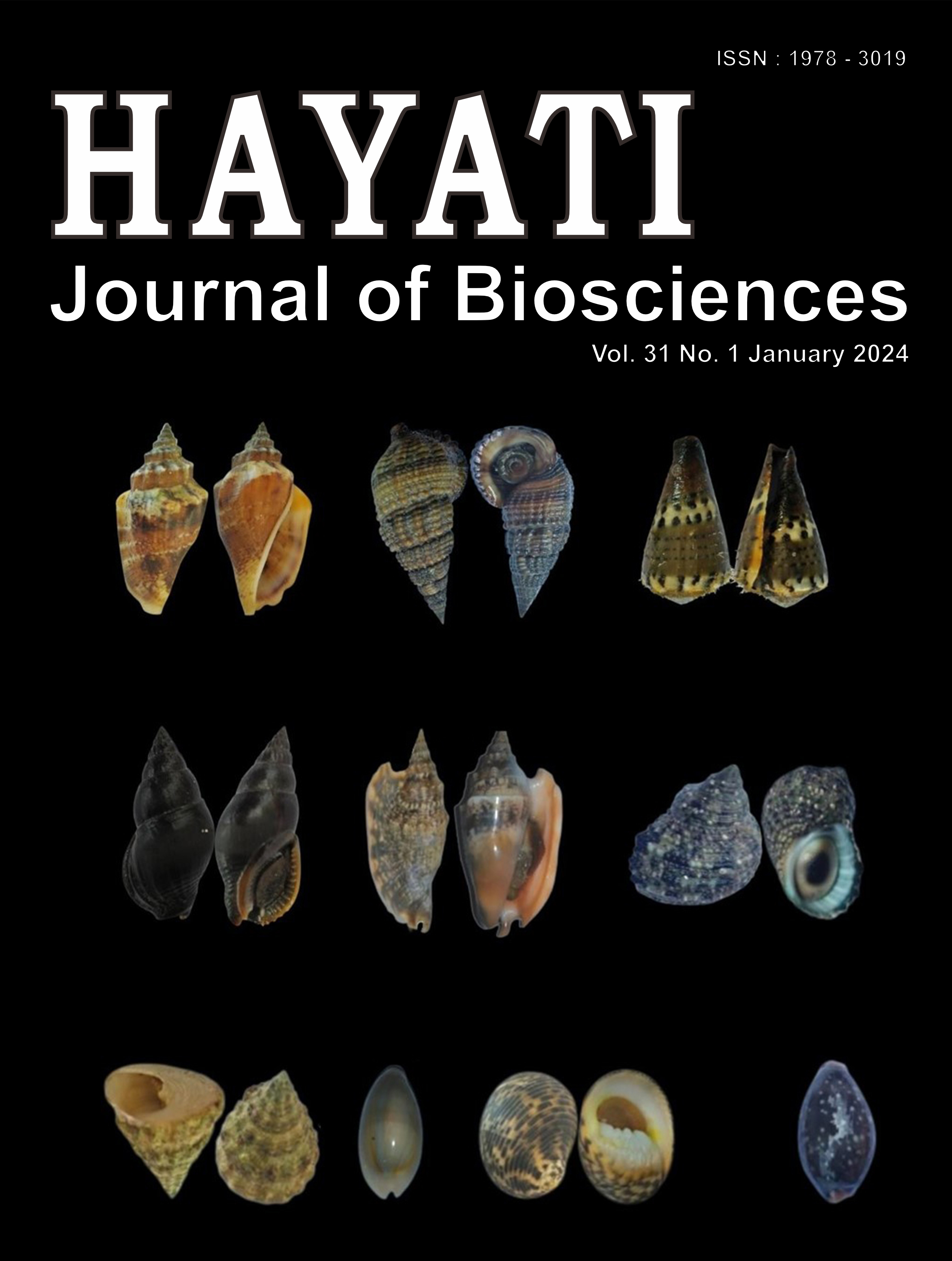Diversity of Harvested Gastropods in Guang-Guang, Mati City, Davao Oriental, Philippines
Abstract
Gastropods are a highly abundant group of mollusks in the marine environment. Marine gastropods primarily function as prey for other animals, grazers which help recycle nutrients and increase bioturbation activities in the marine ecosystem. Edible gastropods are significant to the economy of coastal communities. However, overexploitation leads to harming the population of marine gastropods. The study aimed to determine the diversity of gastropods harvested at Guang-guang, Mati City, Davao Oriental. It also assessed the abundance of the identified gastropods in the area. This study used purposive sampling to enroll gleaners (N = 30) who collected shells and monitored their gastropod harvest. The harvested gastropods were segregated, counted, and identified with the help of gleaners. A total of ten gastropod species were identified from the family of Strombidae, Conidae, Neritidae, Cypraeidae, and Turbinidae. The most abundant group after harvest was Canarium urceus, with a relative abundance of 67%, followed by Ilyanassa obsoleta, with 22%. However, the least harvested species was Nerita, with a relative abundance of 0.18%. The findings revealed that the harvested gastropods in Guang-guang have a diversity index of 0.99, indicating a low diversity of gastropods in the area. This low diversity could mean the area experienced overexploitation through time as gleaners have heavily harvested gastropods. With that, it is highly recommended that conservation should be prioritized to preserve the seashells.
Downloads
Copyright (c) 2023 Imee S Maynawang, Edison D Macusi, Nur Fadli, Ivy M Nallos

This work is licensed under a Creative Commons Attribution-NonCommercial 4.0 International License.
HAYATI J Biosci is an open access journal and the article's license is CC-BY-NC. This license lets others distribute, remix, tweak, and build upon author's work, as long as they credit the original creation. Authors retain copyright and grant the journal/publisher non exclusive publishing rights with the work simultaneously licensed under a https://creativecommons.org/

























.png) IPB University
IPB University Department of Biology
Department of Biology The Indonesian Biological Society
The Indonesian Biological Society 

